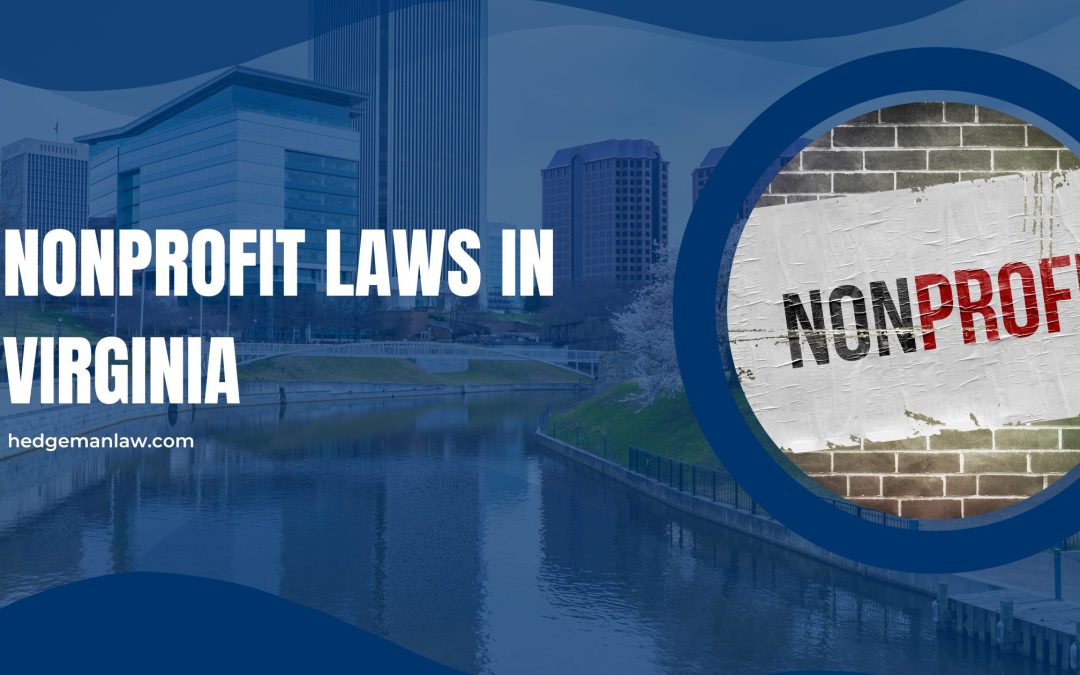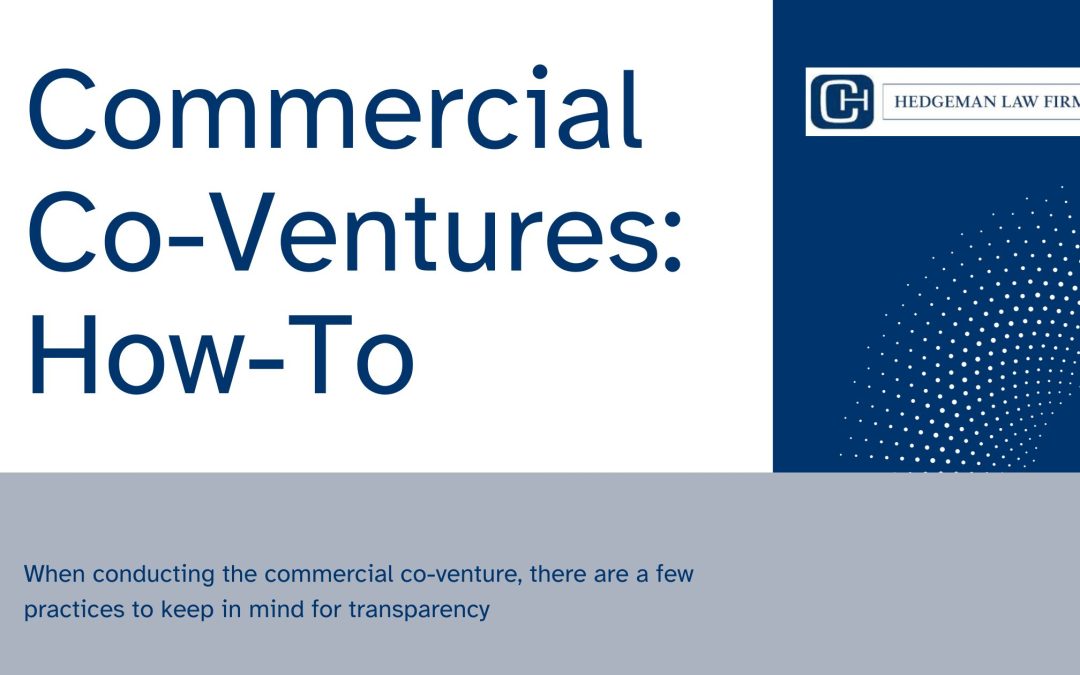
by Hedgeman Law | Nonprofit
Organizations formed in Virginia to conduct business on a nonprofit or not-for-profit basis are usually formed as Virginia nonstock corporations. These corporations, which can, but are not required to, have members (i.e., a membership), do not have owners. When you...

by Catherine Hedgeman | Business, Nonprofit
This guide will assist nonprofits in implementing successful Conflict of Interest Policies. This guide reflects amendments to the Not-for-Profit Corporation Law (“N-PCL”) which became effective May 27, 2017. Why implement a Conflict of Interest Policy? A Conflict of...

by Catherine Hedgeman | Nonprofit
Overview: Many nonprofits choose to team up with a for-profit business to benefit the charity while simultaneously promoting a product, service, or good that the business is selling. What is described here is known as a commercial co-venture. While this activity may...
by Catherine Hedgeman | Nonprofit
As a nonprofit corporation operating under §501(c)(3) of the Internal Revenue Code, maintaining tax-exempt status is a priority. However, a corporation may generate income from activities that are taxable. For example, a church may operate a theater for educational...
by Catherine Hedgeman | Nonprofit
For nonprofit organizations operating under §501(c)(3) of the Internal Revenue Code, some records are open for public inspection. This includes: Annual returns for 3 years after the due date, such as Form 990 and 990-T. All Form 990 schedules, attachments, and...
by Catherine Hedgeman | Nonprofit
There are many reasons you might want to start a non-profit corporation. Perhaps you have a passion for giving back and a great idea for addressing a known need or issue in the world. Maybe you already operate a for-profit business and would like a separate charitable...




